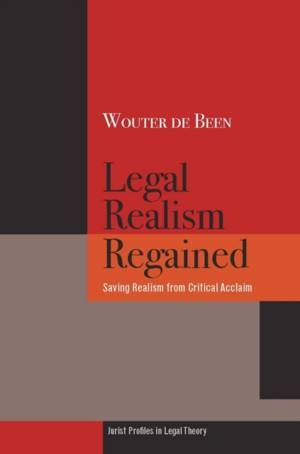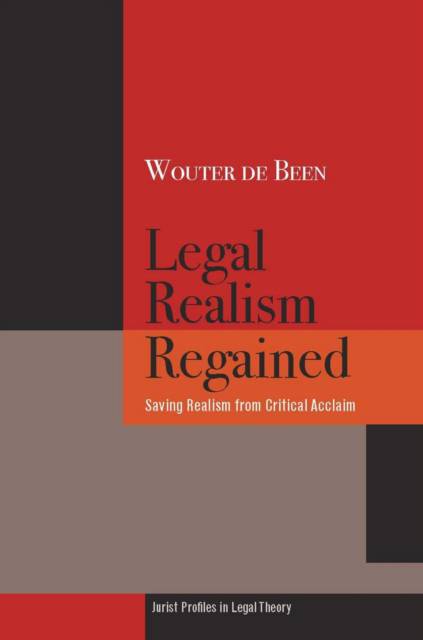
- Retrait gratuit dans votre magasin Club
- 7.000.000 titres dans notre catalogue
- Payer en toute sécurité
- Toujours un magasin près de chez vous
- Retrait gratuit dans votre magasin Club
- 7.000.0000 titres dans notre catalogue
- Payer en toute sécurité
- Toujours un magasin près de chez vous
Description
Legal Realism Regained presents a comparison between the legal realists, a group of pragmatic legal theorists from the 1920s and 1930s, and critical legal studies, a movement of postmodern legal theory during the end of the twentieth century. The book argues for a return to legal realism and the classical pragmatism of John Dewey and William James and for a rejection of the postmodern critique of critical legal studies. It discusses the two movements with respect to three topics: their view of history, their view of social science, and their view of language.
Rejecting the claim that critical legal studies can be seen as the heir of legal realism, Legal Realism Regained argues that, with respect to each of these three topics, the realists still present a stronger argument than their more radical descendants.
Spécifications
Parties prenantes
- Auteur(s) :
- Editeur:
Contenu
- Nombre de pages :
- 264
- Langue:
- Anglais
- Collection :
Caractéristiques
- EAN:
- 9780804756594
- Date de parution :
- 13-02-08
- Format:
- Livre relié
- Format numérique:
- Genaaid
- Dimensions :
- 158 mm x 234 mm
- Poids :
- 489 g

Les avis
Nous publions uniquement les avis qui respectent les conditions requises. Consultez nos conditions pour les avis.






